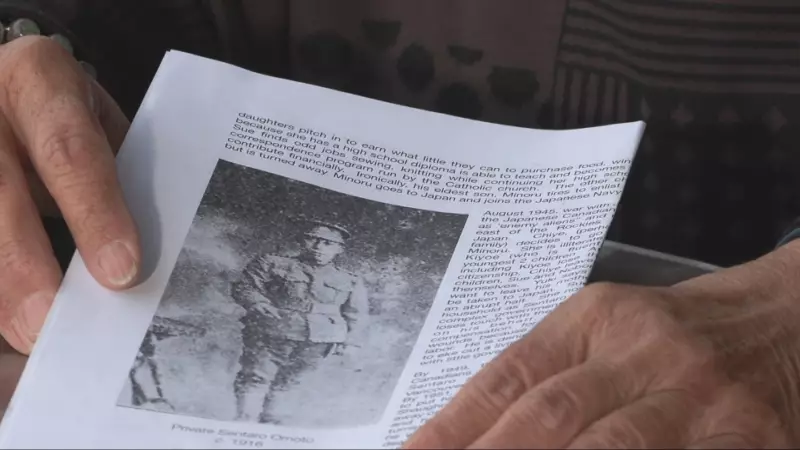
Nearly a century after his service in the First World War, the family of Japanese-Canadian soldier Pte. Sentaro Omoto is embarking on an emotional mission to honor his final wishes. They seek to bury his ashes in British Columbia, the province he called home before facing discrimination and displacement.
A Soldier's Unfulfilled Wish
Sentaro Omoto served Canada with distinction during the First World War, wearing the uniform at a time when Japanese-Canadians faced significant prejudice. Despite his military service, Omoto and thousands of other Japanese-Canadians were later subjected to internment and property confiscation during World War II. This historical injustice prevented him from being laid to rest in his chosen homeland.
The current generation of Omoto's family has taken up the cause, determined to correct what they see as a longstanding wrong. "I need to make this right," declared a family member, expressing the deep personal commitment driving their quest. The ashes have been preserved for decades, waiting for the proper moment and place for burial.
Historical Context and Significance
The timing of this effort, revealed in November 2025, carries particular significance as Canadians prepare for Remembrance Day ceremonies across the country. The story highlights the complex history of minority soldiers who served Canada despite facing discrimination at home.
Japanese-Canadian soldiers like Omoto served with honor even as their families back in Canada faced suspicion and internment. This paradox of service versus discrimination represents a challenging chapter in Canadian military history that families like the Omotos are now working to reconcile.
The Path Forward
The family's quest involves navigating both bureaucratic processes and historical sensitivities. They are working with various organizations and government entities to secure permission and find an appropriate burial site in British Columbia that honors Omoto's legacy and service.
This effort comes as Canada continues to reckon with historical injustices against various communities. The successful burial of Pte. Sentaro Omoto's ashes would represent not only a personal victory for his descendants but also symbolic healing for the broader Japanese-Canadian community affected by wartime policies.
The family remains hopeful that by Remembrance Day 2026, they will have achieved their goal of laying their ancestor to rest in the province he loved and defended. Their journey serves as a powerful reminder of the ongoing work required to address historical wrongs and honor all who served Canada, regardless of their background.






